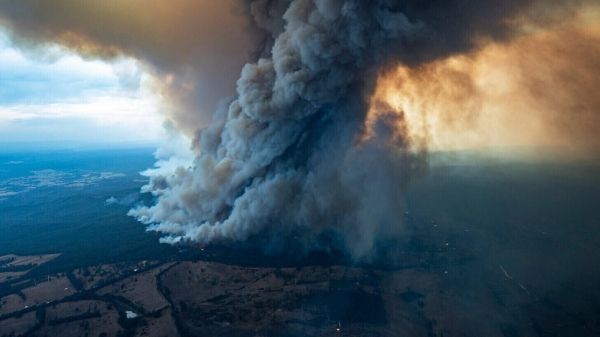The recent massive wildfires in Australia have killed more than 30 people and an estimated 1 billion animals, and burned 2,500 homes and millions of acres. And the human toll is expected to rise even after the blazes wind down. According to Harvard scientist Loretta Mickley, senior research fellow in atmospheric chemistry at the Harvard John A. Paulson School of Engineering (SEAS), long-term exposure to the smoke-filled air hanging over much of the country could lead to many premature deaths in Australia. In 2015, Mickley and a team of experts estimated that the air polluted by large forest fires in Indonesia had caused more than 100,000 premature deaths in that region. “The air quality across a large area of Australia has been very poor over a sustained amount of time, and the net health effects could last for several months to a year,” said Mickley, who spoke with the Gazette about her research.
GAZETTE: What are the short-term versus the long-term effects of exposure to this kind of smoke?
MICKLEY: We do see acute health effects from fires. For example, someone may have an asthma attack from high levels of smoke in her neighborhood, or we might see an increase in hospital admissions for lung complaints or similar conditions. But what people don’t always realize is that the particles in the smoke can affect chronic conditions like heart or pulmonary diseases, and the current thinking is that the long-term health effects can be quite severe over a period of a year or even more. So someone may get a stroke next June in that region and not realize that it can be traced back to smoke exposure. I think that effect has not been widely reported with the fires in Australia.
Continue reading at Harvard University
Image via Harvard University


